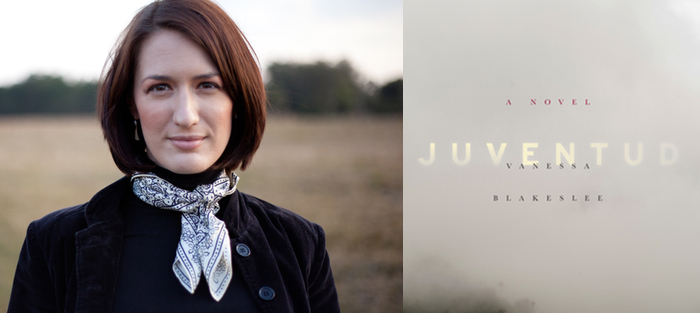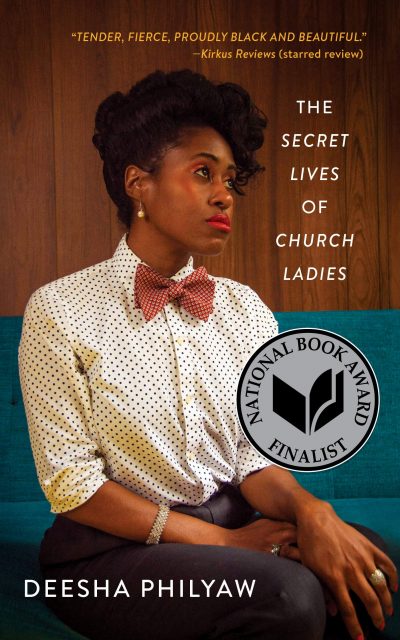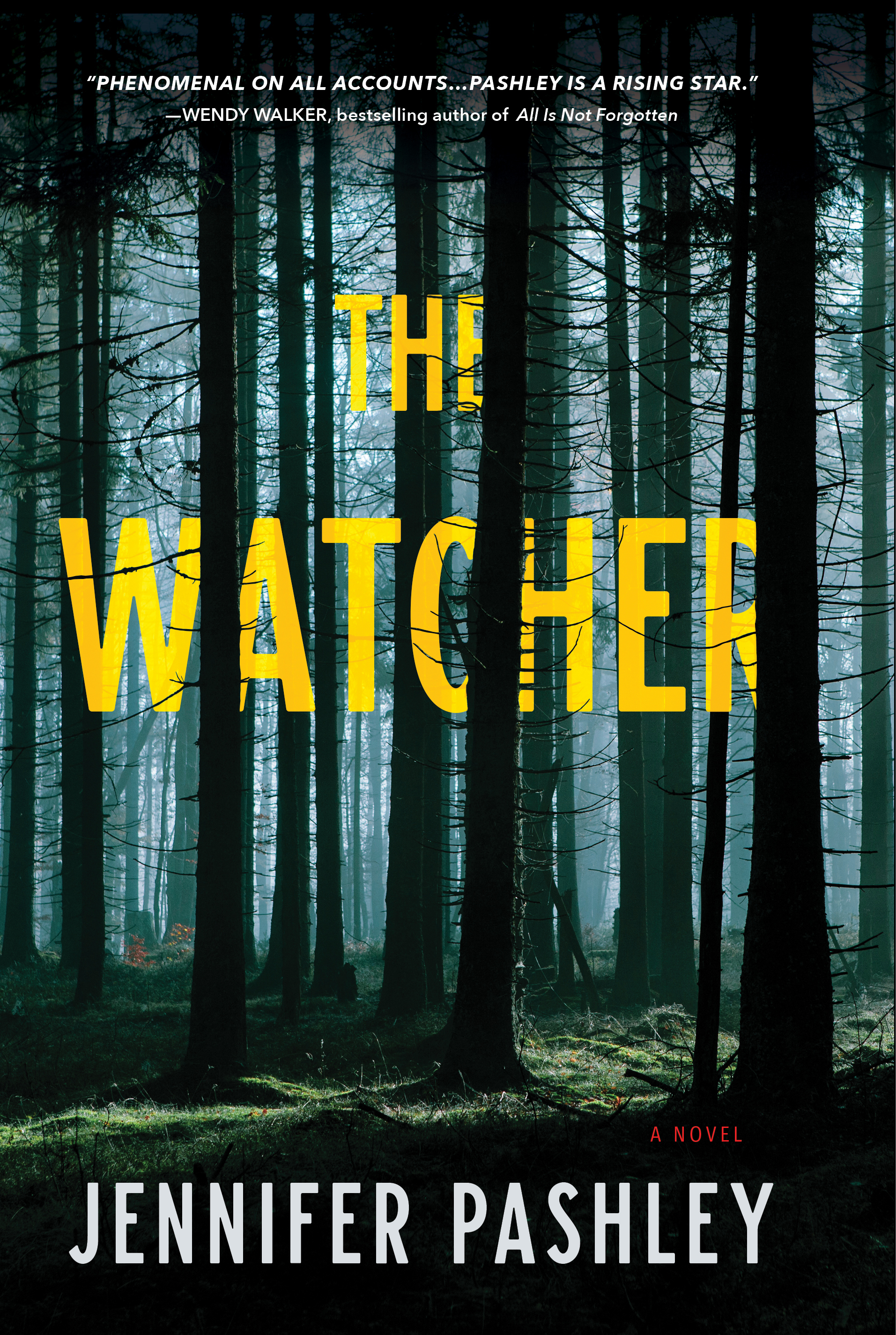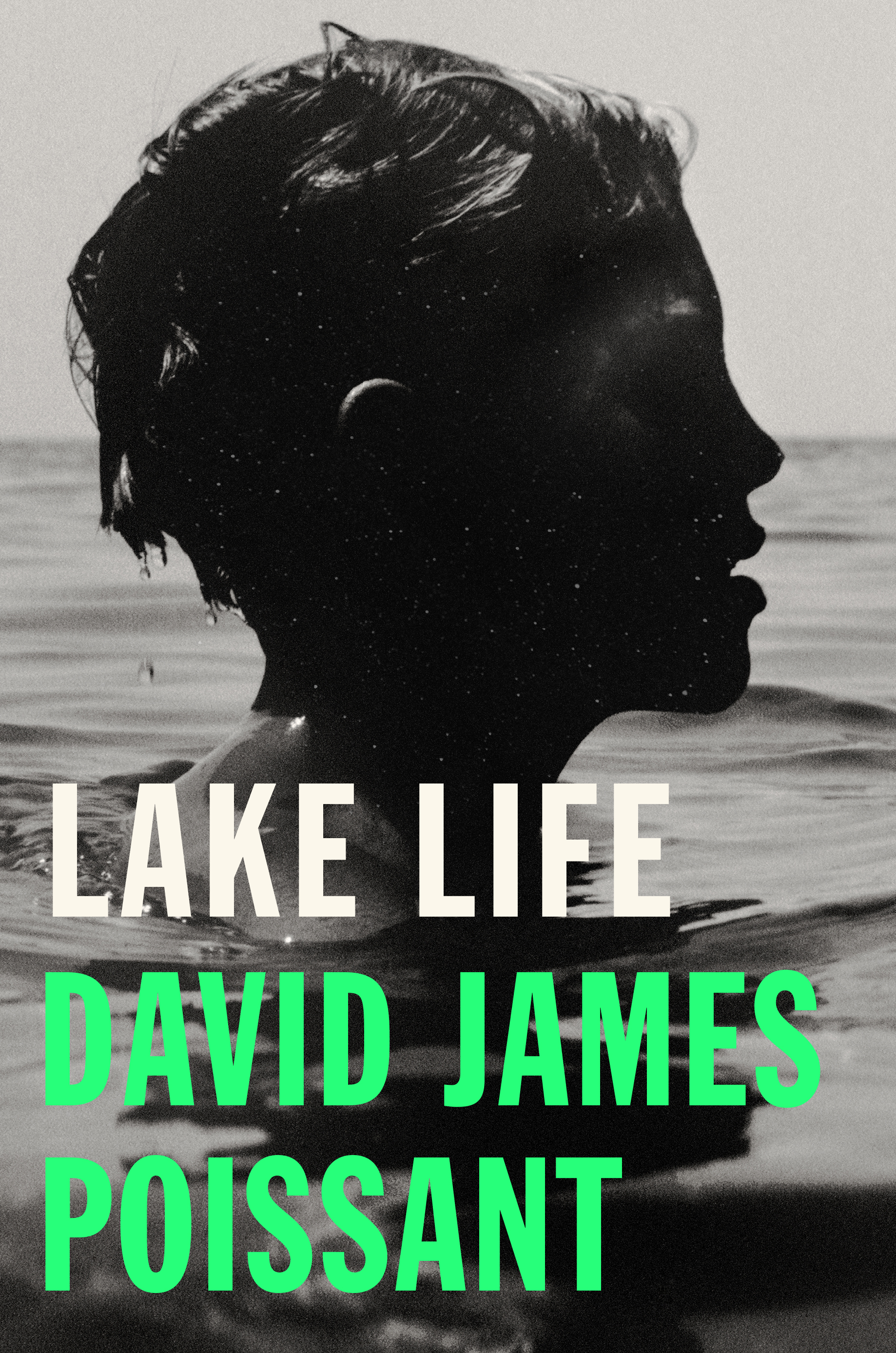Short stories are rarely optioned for the screen, let alone short story collections, but this was the surprising fate of Vanessa Blakeslee’s debut book, Train Shots (Burrow Press, 2014), which drew the attention of NYC-based producer/director Hannah Beth King. What isn’t surprising, though, is just how good the stories are in her collection. Starting with a restaurant hostess’s first day of punishment on the job and ending with a train engineer’s reckoning with the death of a young woman in his path, the book of short stories is brutally powerful and harrowing, and you only start to understand its author’s range of interests and techniques.
Awarded the 2014 Independent Publisher’s Gold Medal in Short Story Fiction, Train Shots featured narratives that also won Blakeslee the inaugural Bosque Fiction Prize, and which vaulted her onto the long-list for the Frank O’Connor International Short Story Award and into the finals of the Sherwood Anderson Fiction Prize. She’s been awarded grants and residencies from Yaddo, the Virginia Center for the Creative Arts, the Banff Centre, Ledig House, and the Ragdale Foundation, and in 2013, she received the Individual Artist Fellowship in Literature from the Florida Division of Cultural Affairs.
Following up on such a strong and steadfast debut, Blakeslee released her first novel, Juventud, last month with Curbside Splendor, and has been busy on tour with the book. The work follows the philosophical, emotional, and sexual growth of her young protagonist, Mercedes Martinez, and what it means to grow up and return, years later, to the still-looming shadow of Colombia’s drug wars and political strife. On the week of her book’s release, we had the opportunity to chat just before the opening of the Italian-American Studies Association Conference, in Washington, DC.
Interview
Barrett Bowlin: So I’m curious―how does this tour in support of Juventud differ from your previous tour with Train Shots? What would you say have been the big, noticeable changes?
Vanessa Blakeslee: Just in terms of physical distance, the Train Shots book tour and this one for Juventud differ greatly. With Train Shots I toured, for the most part, in Florida; this made sense when you consider a number of the stories in the collection take place there. Juventud is a novel, and by definition contains a wider scope. But more than that, the settings and themes addressed in the narrative are more global, and I think, speak to a wider audience. The most noticeable differences with this tour are that I’m getting to connect directly with not only fans of Train Shots, but booksellers, salespersons, librarians, festival coordinators, and the like. I’m giving a proper author talk for the first time, since the book required a considerable amount of research, and the audience Q&As are more involved. And occasionally, I’m able to stay in some nice hotels when not bunking in a longtime writer friend’s guestroom.
That is to say (if I may add), I’m touring widely outside Florida, in the Northeast and Midwest, and in 2016, the West Coast.
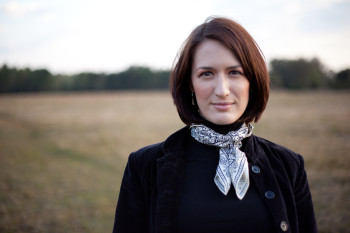 I’m glad it’s running at a larger scope and pace. Along those lines, have you noticed a change in the way you promote yourself as an author? More specifically (or generally, rather), how have you seen yourself grow as a writer between the collection and the novel?
I’m glad it’s running at a larger scope and pace. Along those lines, have you noticed a change in the way you promote yourself as an author? More specifically (or generally, rather), how have you seen yourself grow as a writer between the collection and the novel?
I have changed in how I promote myself, in several ways. Since publishing Train Shots, I am much more discerning about what I post to social media, for one. I enjoy connecting authentically with friends and followers, and once in a while that includes opening up about personal trials, but I steer clear from posting political articles and such. I don’t have time for it, and I’ve decided that if I really want people to know my views on an issue, I’d rather reflect, write a quality essay, and publish that. With Juventud, though, I really ramped up promotion, assembled a team of volunteer interns, grew more skilled and confident in delegating promotional tasks, as well as more savvy in an entrepreneurial way. As a writer, the rigors of the long form did wonders for honing my craft, and I love working in the grander scale of storytelling.
So in terms of changing as a writer, do you find yourself still connecting back to the short-story mode, or have you started situating yourself more as a novelist?
Each come from different states of mind, the short story and the novel. And those are two mindsets I find I can switch between rather easily, and do, without much thought. So if I had to predict, I’d say I’ll continue in both. With Train Shots and Juventud, as well as the stories that are coming together for my next collection, I worked on both; that is, I worked on a novel draft, set it aside for two months and then worked on stories, returned to the novel, etc. This was my habit for years. Although right now, I’ve shut down the fiction floodgates in order to put my energy into the book tour. As soon as I finish revising the stories for this next manuscript, I’ll probably dive back into the new novel/new stories alternating pattern for another five years. That seems to be the way I work. When I’m promoting, I’ll take notes for stories, but I don’t write new fiction unless I have a certain amount of head space and energy for it. I don’t fear taking time off―even a year or two―from drafting new work.
That’s absolutely brave as a writer. No joke.
Okay, I’m dying to get into the book. You’ve mentioned in other interviews that your fiction arises mostly from setting. And I know your readers, as well, always get an amazing sense of place from your prose (e.g., the geographical and class borders of Costa Rica in “Welcome, Lost Dogs,” the dry season of Florida in “The Lung,” the isolated spaces of Pennsylvania in “Barbecue Rabbit,” etc.). So how did you decide on the setting of Colombia in the ’90s as the backdrop for the first two-thirds of Juventud? What did you need as an author to build this space on the page?
I love to travel just as much as I love to write. Maybe all the books I read in childhood about faraway places helped to shape that part of my imaginative engine; I don’t know. While my experiences in foreign locales directly inspired Train Shots, I’ve never been to Colombia. That story arose from a conversation I had in college with some fellow students, all girls, who were sharing one night about our first experiences with boys and sex. One student was from Colombia, and she told us her first lover had been killed when she was sixteen. They’d been out at a nightclub, and a masked gunman strode up and shot him. The boyfriend died in her arms on the dance floor. Moreover, she added that she couldn’t be sure, but she suspected that her father might have arranged it. He hadn’t approved of her lover, and was adamant that she leave Colombia―this would have been the mid-’90s, at the height of the violence. He wanted her to study in the U.S., but she didn’t want to go. Those dramatic questions never left me―what would that have been like, to have your first experience with love end in cradling this young person as he bled to death in your lap? What kind of man was the father, for her to even suspect he would do this?
In the initial research phase, I considered setting the story in a neighboring country, but the more I researched Colombia, I realized I had to set it there.
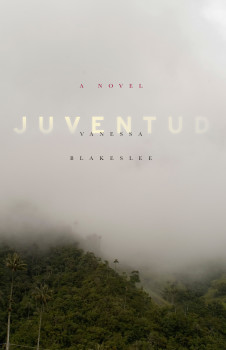 I love knowing that. I know you’ve been to Costa Rica, but that’s a country and a half away. It’s to your absolute credit, by the way, that you were able to pull off such a rich and lush setting from afar.
I love knowing that. I know you’ve been to Costa Rica, but that’s a country and a half away. It’s to your absolute credit, by the way, that you were able to pull off such a rich and lush setting from afar.
Okay, going back into that conversation with the girls in college, one of the things I most admired about your depiction of Mercedes and Manuel’s young love―and one of the things that makes it most believable―is that it maintains that tension between sexuality and passion (toward one another, toward social justice, toward love of family) without ever blatantly favoring one over the other. There’s obvious lust between our star-crossed lovers, of course, but they value a loyalty toward their ideals more so than other characters like Carlos and Ana, for example. What, then, made this tension an essential component of the book for you as you wrote and revised it?
That’s a very interesting aspect of the book I hadn’t been consciously aware of, so thank you for bringing it to my attention. I suppose that tension stems from my beliefs somehow―that for love to be real, it’s got to be based in true respect, kindness, good humor, intellect, as much as, or even to a greater extent than, lust. That kind of attraction on a deeper level is truly rare, and I believe most of us only get a few brushes with finding (and keeping) it; for some, never. So I’m glad to know that tension is palpable and nuanced for readers. Certainly I went over the scenes many times, striving to paint the interactions between Manuel and Mercedes just right.
Those scenes were particularly well done. You had the tension there, and you had them both wanting more out of the relationship than just the physicality of it. And then I liked it how you tempered that with Mercedes’ other lovers beyond the tragedy with Manuel. It made her seem more real, more nuanced, and wiser about herself and her decisions as she grew up. Where I wouldn’t trust a lot of bildungsroman texts to pull this off, I really, really enjoyed it with Juventud.
So glad to hear it. I was aiming for a specific effect in showing her romances after Manuel, and where she is at the book’s close.
It was an incredibly strong character arc, and I haven’t really seen a lot of that in novels before. Speaking of which, another area I was hoping we might cover concerns the idea of discovery and disclosure. Specifically, Mercedes comes to realize a great deal about her father’s past, her mother, the political landscape she inhabits, and, ultimately, about herself. In fact, one of the most introspective moments in the book happens when Mercedes finds her birth certificate and remembers the parable from Genesis, and how “knowledge is irreversible.” Was this a theme you set out with before you started the book, or did it take shape as you wrote?
I knew I wanted to weave in religious themes, and have Mercedes’ encounters with Judeo-Christian teachings stir within her thoughts but not in a heavy-handed way; the power resides in how tangentially these passages of character thought and rhetorical questioning float up. The line “knowledge is irreversible,” along with others, surfaced naturally as the narrative developed. Certain religious themes and Catholic dogma I knew I wanted to take on more directly―the subjects of premarital sex, forgiveness, redemption, “faith in action.” I didn’t write that consciously thinking of how it captures the raison d’etre of the novel, but I suppose it does.
And that’s just one of your excellent quips in the book, by the way. I found myself underlining a few choice lines on occasion. Another great one comes from Sister Rosemary and Mercedes’ reflection on it: “Sometimes in order to see your life clearly, you must leave it.” Here, in order for Mercedes to investigate the biggest mystery in her life so far, she had to abandon it for over a decade.
That line is one of my favorites. Because I have experienced it to be true.
In terms of research, as well, you write in the acknowledgements section of Juventud about the texts you needed to read in order to build the book, e.g., Brittain’s Revolutionary Social Change in Colombia, Hristov’s Blood and Capital, etc. What was the most surprising thing you found in your research, then? (It didn’t necessarily have to make an appearance in the book, but what was the most unexpected thing you encountered?)
By far, the most shocking and disturbing facts I learned in those texts were the accounts of horrific paramilitary atrocities upon peasant civilians, the U.S. involvement, and how many of these human rights abuses surpassed the terrorist acts of the revolutionary guerrilla groups. And yet the mass media remains silent about such massacres, or reports only on guerrilla and narcotrafficking activity, painting those factions as the “bad guys.” While a number of these paramilitary leaders had in fact been trained in the U.S., by our military. Mercedes merely references these instances in the novel, but anyone who wants to learn more hard facts may consult those resources. I had to dig to find them, and even went so far as to contacting some Latin American Studies professors for recommendations. My initial Amazon searches turned up pop nonfiction titles, e.g., Killing Pablo and the like. I knew what I needed I wouldn’t likely find in the mainstream, and I was so relieved and grateful once I discovered those resources.
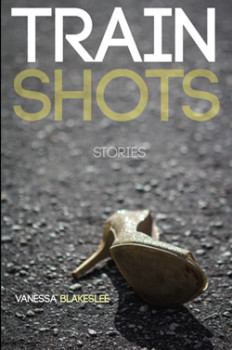 Along the lines of the above, what authors (aside from those writing nonfiction about Colombia, the FARC, the ELN, the AUC, and South and Central America’s drug wars) did you have to read in order to be able to create Juventud? This isn’t so much a question about your big literary influences but more precisely about the authors who you picked technique and craft up from in order to write the novel.
Along the lines of the above, what authors (aside from those writing nonfiction about Colombia, the FARC, the ELN, the AUC, and South and Central America’s drug wars) did you have to read in order to be able to create Juventud? This isn’t so much a question about your big literary influences but more precisely about the authors who you picked technique and craft up from in order to write the novel.
Craft-wise, Douglas Glover’s essays on novel-writing in his craft text, Attack of the Copula Spiders, formed the basis of my technical blueprint in terms of sub-plotting, image patterning, as he calls it, and rhetorical devices, including aphorisms such as the one you pointed out above, by Sister Rosemary. Authors of influence included Margaret Atwood, Danzy Senna, and Barbara Kingsolver, who was an influence from way back when I read The Poisonwood Bible.
Currently, I know you’re not as engaged with producing fiction since you’re already touring and promoting it right now, but what’s next for you project-wise? You’d mentioned the blend of short stories and a possible novel in the works, but do you have the scope of another collection or the arc of another novel revving to get worked on?
I’m never, ever at a loss for envisioning premises. On deck is the revision/edit of my second story collection manuscript, which I’m slated to get to over winter break. Then, I’ve got a multi-generational Italian-American project that I’ve been working on for years. A few excerpts have been published, but I may apply for a Fulbright to finish it. One reason I don’t fret too much over not writing fiction for long stretches, a year or more, is because I’m a big believer in the subconscious. Those dramatic questions and the bare bones-premise for Juventud simmered for five or six years, and the first act practically shot out when I sat down to write it. Similarly, over the past few years I’ve can see a dystopian Florida taking shape―I’m obsessed with what Florida will become fifty years from now. So I sense that will be my next big novel, whenever I can clear the space and settle down to write again. For now, I’m enjoying the furlough into nonfiction that book promo brings: essays, blog posts, and the occasional tweet.

